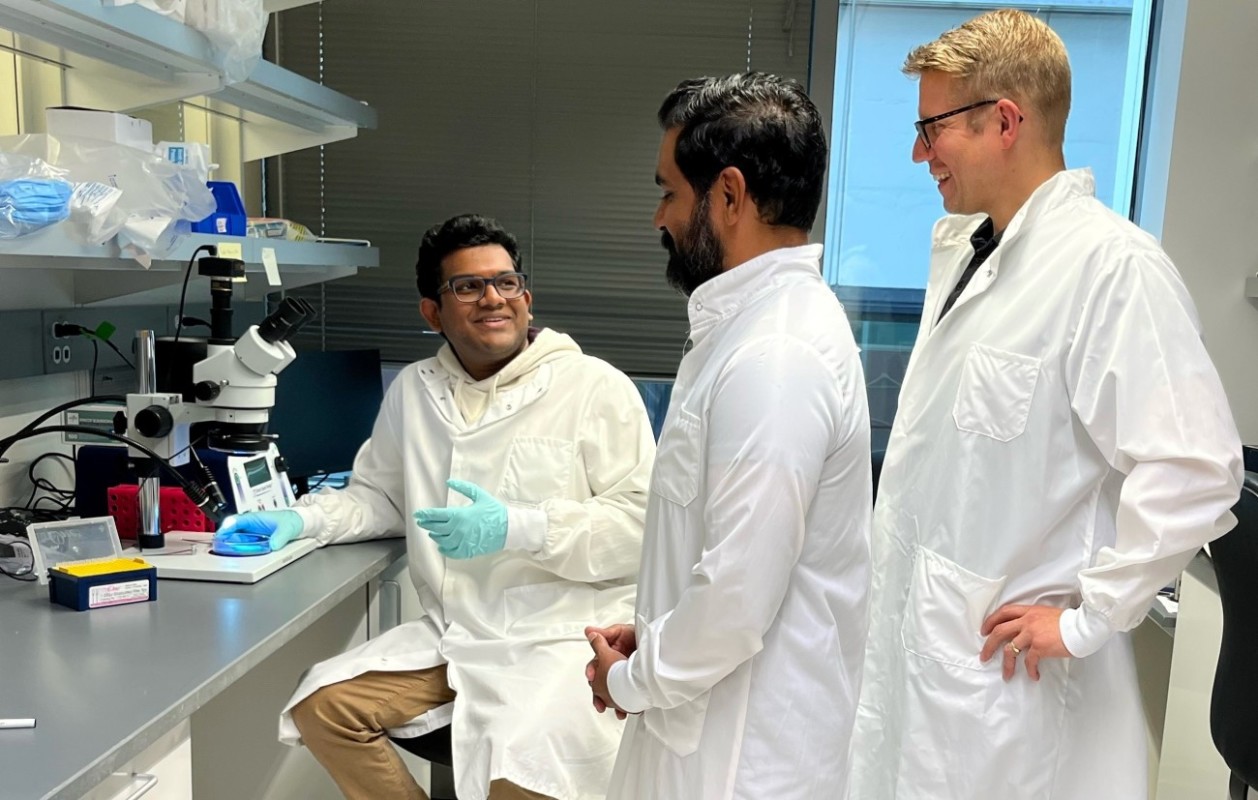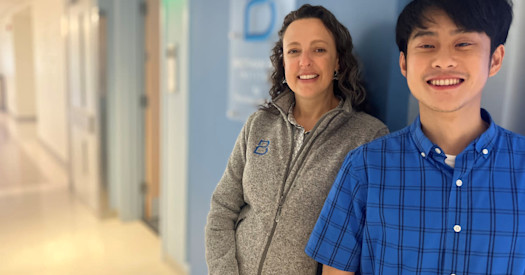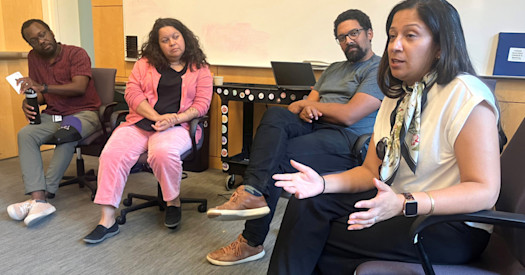 Manith Atapattu (left) seeks guidance from co-mentors Drs. Santiago Fregoso (center) and Tim Cherry. Photo courtesy Cherry Lab
Manith Atapattu (left) seeks guidance from co-mentors Drs. Santiago Fregoso (center) and Tim Cherry. Photo courtesy Cherry Lab
Most students who “shadow” primary care physicians observe medical procedures in examination rooms in hospitals or clinics. Manith Atapattu last spring observed something quite different: doctors making “house calls” to patients’ homes.
The setting was the Makah Tribal Nation in Neah Bay on the northwest tip of Washington State; only 200 miles from downtown Seattle, but light years away from robotic surgery and genomic sequencing. The nearest hospital is in Post Angeles, a two-plus hour drive away.
Services at the Sophie Trettevick Indian Health Center, named for the tribe’s first nurse, include primary care, lab work, pharmacy, mental health, and addiction recovery services and more.
“These health center’s physicians work hard and do the very best they can under really difficult conditions,” said Atapattu, who is expected in 2025 to complete a Bachelor of Science degree in biochemistry from the University of Washington.
“Access to care is a significant issue on the reservation, as well as, of course, substance abuse. This experience reinforced my interest in the healthcare system and patient care.”
Another experience this summer reinforced his interest in research: working as an undergrad summer scholar in the lab of Dr. Tim Cherry at the Seattle Children’s Research Institute.
“Manith has a real excitement for science,” said Cherry, a member of the Brotman Baty Institute, whose lab investigates ways that genetic variations contribute to blindness and other visual disorders. “When Santiago Fregoso (a post-doc in Cherry’s lab) and I interviewed him for the summer scholar program in our lab, Manith had read some of our papers and came ready with questions. He also showed a real ability to think on his feet.”
That “excitement for science” enables Atapattu, 19-years-old, to study how microRNA affects the development of the brain, primarily using cells from the brains of embryonic mice.
“Manith has a background interest in cancer and so we agreed together that he would look at cellular proliferation in this model,” Cherry said. “During normal brain development, progenitor cells have to decide whether to continue to divide to make a bigger brain or to leave the cell cycle and become the mature cell types that mediate brain function. Since unchecked proliferation can be a hallmark of cancer, we thought this would be a great project for him.”
The ”greatness” of this project includes benefits Atapattu may not have expected. “I’m working alongside Dr. Fregoso and it’s quite fascinating,” Atapattu said. “He and other lab members also discuss how their work brought them to where they are, so I also am getting helpful career advice.”
That advice, thus far, is moving Atapattu to ponder the UW’s Medical Scientist Training Program, a dual degree M.D. and Ph.D. curriculum integrating clinical work and research. Students typically complete the program in eight years.
Such an ambitious undertaking likely was the furthest thing from is mind when Atapattu’s parents gave him a microscope when he was 10. The family was living in Sri Lanka.
“I started playing with the microscope, dissecting plants,” he said. “My parents noticed my interest and encouraged me.”
Three years later, he and his family emigrated to the US; they settled in Renton.
In high school, he took an AP biology course and became fascinated with science. However, it was a school field trip to the Fred Hutchinson Cancer Center in 2019, during Atapattu’s sophomore year, that took his fascination to a new level.
“The scientists showed us CAR-T cell distribution, how they are made, as well as their potential for being very promising cures,” he said. “My curiosity was piqued.”
He joined the science club at Hazen High School and started taking classes at Bellevue College as a “running start” student. In addition, Atapattu, with support of the Hutch’s Science Education Partnership program, organized and led a biweekly student-led journal club introducing students to critical thinking and analytical skills.
Atapattu’s seemingly endless passion for science likely will serve him well in post-undergrad studies – and beyond – according to Cherry.
“Manith has a genuine enthusiasm for solving problems and learning more about the technical and scientific aspects of research,” he said.


